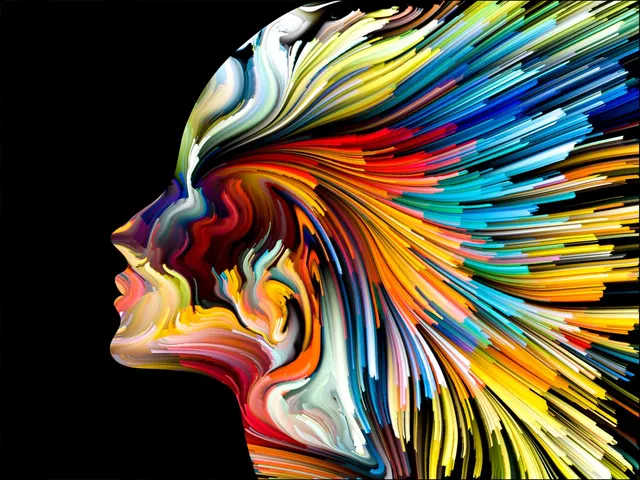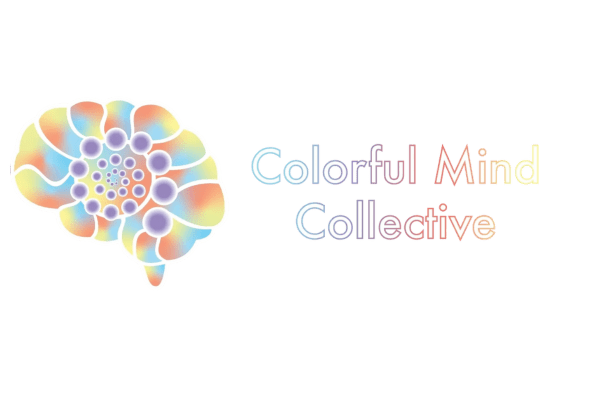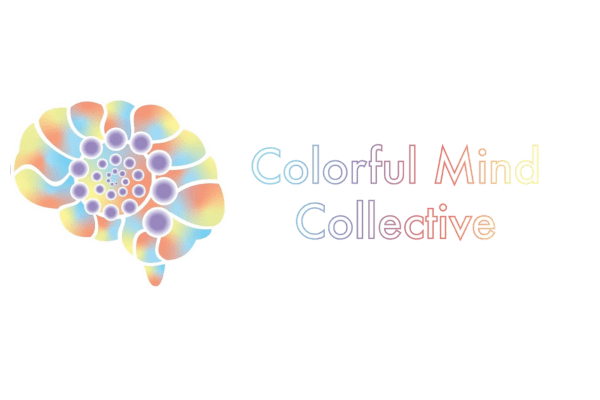
“Accepting myself”
I’m not really sure how to start one of these, but I’ll give it my best shot. If I had to start from the beginning, I guess my mental health journey began at a very young age, around 7 years old. I grew up in a strict, verbally, and physically abusive household where the only values they wanted to instill in me were intelligence, obedience, and religious faith.
I wasn’t allowed to visit anyone who wasn’t family or from our church, and bringing friends was out of the question. The lucky exception was when my cousin’s family or church members with kids my age would decide to visit. As a result, I became very antisocial and struggled to form deep, meaningful connections outside of my four cousins and little brother.
My little brother and I would often get yelled at for laughing too loud or even physically punished when we accidentally hurt ourselves (ironic, I know). For the longest time, I believed this was normal. I learned that if you did something right, you’d be rewarded with love, but if you made a mistake, even something as simple as misspelling your name, you’d be beaten. Even as a child, I knew deep down that this was wrong.
As I grew older, I started to realize that many people in the world lived in even worse conditions than I did. Despite my young age, I felt a strong desire to help and make a difference. However, I had no means to assist them, and it seemed like no one else was making a significant impact. Living in such conditions and understanding the existence of even greater suffering in the world created an overwhelming sense of sadness within me that I couldn’t comprehend or overcome.
I often found myself pondering the immense sadness and pain in the world, hoping that if I could somehow fix it, my home life would follow suit. But as a child, no matter how intelligent, I gradually realized my limitations. After contemplating for so long on how to save the world, yet finding no answer in sight, I would burst into tears, feeling utterly helpless.
Unfortunately, my parents didn’t acknowledge the existence of depression, anxiety, or any other mental disorders that weren’t immediately visible. When they asked why I cried, I would tell them I simply missed my classmates. Crying was considered a weakness and met with swift punishment.
In the immortal words of what I believe to be most middle-aged fathers, ‘Stop crying or I will give you something to cry about.’ I felt alone, with no one to talk to, not even the people who loved me the most. When I was alone with my thoughts, the feeling of isolation intensified. In my mind, it was as if I was trapped in an endless, dark abyss, with only a spotlight illuminating me, curled up with my head in my knees, weeping uncontrollably. You would think the light gave me hope, but in those moments back then, I saw the light as discouraging because internally it felt like the light was only there to illuminate my sadness and depression to myself and nothing more. It felt like I spent years just watching that little boy weep inside me, just observing because I didn’t know what else to do or if there was something I could do.
I grew to believe this is what everyone felt like at all times. Years went by feeling this way, each year adding more heaviness to the abyss and more tears to my eyes. It wasn’t until I was 10 years old that I first started having suicidal ideation. At that point in my life, I had no idea how to fix myself, let alone the world. The only idea I had was that I just wanted everything to stop. I wanted to stop thinking, stop crying, stop feeling like something broken that couldn’t be fixed. I just wanted that light illuminating my depression to go out, even if it meant I would no longer exist.
I truly believed I would feel that way for eternity and could see nothing beyond the nihilistic depression. The night I finally decided I had enough of existence, I went into the kitchen at 2 AM while everyone was asleep. I grabbed the sharpest kitchen knife and pressed it against my heart, pressing harder and harder until I drew blood. In that moment, I thought to myself, ‘I don’t want this to hurt this bad.’ So I decided that if I kept the knife pointed towards my heart and just fell forward, it would end in a second.
As I began to fall, right before I could no longer catch myself, I heard my newborn baby sister cry. Immediately, I regained my balance and stopped myself from falling completely, losing all desire to end my life. Back then, I didn’t know it, but looking back, I can now say that the reason I didn’t fall was because I didn’t want my sister to go through the same sadness as me. I wanted to help her, even if it meant enduring my own suffering in my mind for much longer. Despite that pivotal moment, I continued to suffer constant emotional turmoil because I didn’t understand how to love myself or where to even begin. I only knew how to see myself as not good enough to exist.
This same feeling persisted during my middle school years. Although I excelled academically, it didn’t bring me any joy. I simply did well in school because it was what my parents expected, and I would be punished if I didn’t meet their standards. At that age, I was curious about many things, particularly books and science. However, my family’s strict religious background stifled my curiosity. They dismissed the books I enjoyed as diabolical and rejected certain scientific concepts that contradicted our religious beliefs. Books had been my escape from home and life in general, but my parents unknowingly took away my only means of escaping my own troubled mind and forgetting about the worthlessness and emptiness I felt.
During this time, I also became a target of bullying due to my weight and bad breath. This further shattered my already fragile self-esteem, but I never confided in anyone because I believed there was nothing anyone could do and that I was completely alone. Most nights, I would silently cry myself to sleep, desperately wishing tomorrow wouldn’t come, longing to drift off into an endless dream. At school, things escalated to the point where even if I said a word to someone, they would pretend to die from my bad breath, even if I was chewing gum. It became easier for me to remain silent and suffer in silence, hoping that someday something terrible would happen to those who tormented me. This was the beginning of 8th grade, and I had already given up on life. My grades plummeted, I stopped doing homework, and my teachers had to intervene and create a daily schedule for me, but I didn’t care.
It wasn’t until I realized that education could be my ticket out of this situation that I decided to make an effort again. I knew that staying in my current environment would drive me to take my own life, so I applied to every boarding high school I could find. With a lot of effort and persuasion from my teachers and me, my parents reluctantly agreed to let me attend a 5-day boarding school. At that point, I felt ecstatic and excited for the first time in a long while. It felt like I was finally reclaiming my freedom.
During high school, my mental health experienced both highs and lows. I engaged in a lot of exercise and sports, which helped improve my overall mood to some extent. However, it did nothing to alleviate the pervasive feeling of emptiness and worthlessness that consumed me. It was around this time that I started using smoking and drinking as a means to escape my thoughts and emotions. I obtained a fake ID to purchase alcohol and had a cousin who sold weed, which I would buy from every weekend to numb my worries. These habits only grew worse throughout high school, and I eventually turned to stimulants like Adderall and Concerta to enhance my alcohol consumption. I was always seeking a state of nonexistence, where I would simply become a body going through the motions, detached from reality. Substances seemed like the only way to achieve this without actually taking my own life.
I remember first hearing about mental health days at my high school and thinking it was a joke. If I ever missed a day of school for a mental health break, I knew my parents would likely punish me or dismiss it as ridiculous. The concept of mental health was entirely foreign to me, and I had been taught to view it as weakness rather than a legitimate issue. So, for the remainder of high school, I silently struggled, occasionally experiencing mental breakdowns that I made sure to hide from everyone.
The college process took a toll on my mental health as it made me equate my value with standardized test scores and grades. Instead of recognizing my humanity, I felt like a mere product of numbers. As a first-generation college student, the process was especially challenging, and I naively believed that college would be my salvation.
However, reality turned out differently than I expected.
During my freshman year, I embraced the newfound freedom and independence. I partied frequently and experimented with drugs, particularly psychedelics and stimulants. Due to financial constraints, my family could only afford to pay half of the tuition, so I resorted to selling drugs to cover the remaining costs. Regrettably, my actions were discovered when someone reported me to campus police. They conducted a search of my room, uncovering the marijuana I had been selling. To my horror, the situation escalated, and the real police were involved. I was arrested and charged with a felony, leading to a weekend spent in state prison. This experience took a significant toll on my mental health, compounding the struggles I was already facing.
At that point, I had not been officially diagnosed with any mental health conditions, nor had I sought professional help. However, I was acutely aware of a deep emptiness within me—an indescribable sadness mixed with an overwhelming sense of numbness. This feeling had permeated my entire life and seemed to define who I was at my core. I despised my depression and anxiety, and I resented myself for not being able to make them disappear. Instead of accepting that mental illness was a part of me, I blamed myself for not being capable of eradicating it. My mind was consumed by thoughts of how to rid myself of these burdens, only to find myself sinking deeper into despair with each failed attempt. It reached a point where I wanted to escape my own mind and detach myself from my body entirely. Throughout my freshman and sophomore years, I fully embraced this dangerous mindset. I stopped caring about anything, particularly my own well-being.
neglected my classes, accumulating significant debt from student loans and credit card expenses. I lost all my investments, found myself in a toxic relationship, and restricted my eating to once a day. Days were spent in bed, engrossed in television shows while getting high. Nights revolved around partying, often involving various substances, all in pursuit of numbing the pain. It reached a breaking point when I found myself on the roof, contemplating jumping to put an end to what felt like an inevitable cycle. The only thing that prevented me from taking that leap was my belief that the height wouldn’t be sufficient to end my life.
As the school year came to an end, I received the devastating news that I would not be able to attend the following year due to my low GPA. I knew I needed help, but I didn’t know where to turn. Fortunately, some compassionate individuals in my life pointed me in the right direction. I became a Methodist church camp counselor, ironically enough. Although I didn’t care much for organized religion, it provided me with the time and space to sober up and start contemplating the best course of action for seeking treatment.
After finishing my summer with the camp, I made the decision to move back in with my parents and find a stable job to support myself. With a sense of stability in my life, I scheduled an appointment with my doctor to discuss treatment options. Together, we determined that seeking counseling would be beneficial. The counselor diagnosed me with anxiety and depression and, with the assistance of a psychologist, prescribed the appropriate medication. However, just as progress was being made, the pandemic hit, and everything shut down. Phone sessions were not as effective as in-person counseling, and I found myself spiraling downward once again. I discontinued therapy and stopped taking my medication altogether.
Fortunately, I didn’t spiral for long. I began using the pandemic as an opportunity for deeper self-reflection and understanding of my mental illness. I developed healthy thought mechanisms that allowed me to better interact with myself and accept all aspects of who I am, including my mental illness. I realized that my mental illness was a part of me, but it didn’t define my entire being. Additionally, I worked through past emotional traumas, leading to stronger relationships with my family.
While these tools were extremely helpful, I recognized the need for professional assistance in self-identifying, regulating, and expressing emotions in a clear manner to improve my overall communication. I wanted to be understood and understand others better, without being crippled by my mental illness or engaging in internal conflicts. Despite my progress, as time went on, the severity of my mental illness began chipping away at my personal growth. Eventually, I reached a breaking point and took myself to the emergency room due to suicidal thoughts. It felt like I was back to square one.
Thankfully, after the ER visit, I resumed my search for a new counselor since my previous one had moved to a different hospital. It was a challenging process, with multiple efforts, calls, and months of waiting on waiting lists. At times, it felt like I would never find the help I needed. However, I was fortunate enough to eventually begin treatment with a new counselor in my city.
I understood that my counselor couldn’t magically solve all my problems, nor did I want that. It would have felt superficial. However, I also recognized that they could guide me towards better ways of thinking. The initial sessions were incredibly helpful in determining the most suitable therapy approach and making important realizations about my life and thought patterns. My counselor and I agreed that cognitive-behavioral therapy would be beneficial, and I’m pleased to say that it has contributed significantly to my personal growth and ability to cope with depression in my daily life. I’m curently still undergoing treatment even now and so far it has given me an immense amount of positivity,hope and self understanding!
Although not every day is perfect with my mental health, I’ve learned through treatment that it’s a process, and it’s okay to have ups and downs. After all, we’re only human.
Share Your Story!

